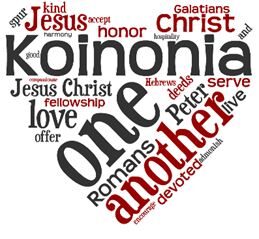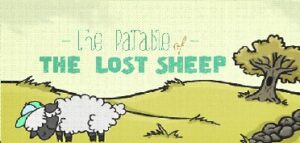“A willingness to share our possessions with one another is a very important aspect of true biblical community.”

“A willingness to share our possessions with one another is a very important aspect of true biblical community.”
It’s about quality of community and relationships. A test of the quality of koinonia in school is how it is shown in people’s lives outside school.
Koinonia is clear from how the school values and rewards behaviour and achievements; it underpins all the school’ values

– The rituals we use (the cross, lighting the three candles and the welcome song) help build community
– Everyone is able to participate
– Pupils and staff share in leading Worship
– We all contribute our ideas and respect those of others
1 Corinthians 12.12-31 describes a body in which each part has a vital contribution to make. When one part of the body hurts, the whole body hurts, when one part is honoured, the whole body is honoured.

– Everyone fees included
– People support one another
– Everyone makes a contribution and gives of themselves
– Everyone knows they are valued and important
– The values of the school have a positive impact on the local community and beyond

Jesus often taught his disciples things about God by telling them stories about things that happen every day. These stories are called parables.
In the parable of the lost sheep, there was a man who had a hundred sheep. Every morning he took them from the fold (a place where they stayed at night) on a hillside and led them to new, fresh pastures. Later in the day he would them to a quiet stream, or, if there wasn’t any stream nearby, he would draw water from a well for them to drink. At night the good shepherd took them up the hill again to the fold. Every day the sheep followed the shepherd wherever he took them. He called them by name, and they came to him. Every night he would count them to make sure they were all there.
One night one little sheep was missing. Somehow it had strayed away and became lost. If the shepherd left it and didn’t go look for it, it would surely be killed by some wild animals. The shepherd did not want to leave it. He left the other sheep and went to find it. He went searching until he found the lost one. (Matthew 18:12-13) When he found it, it was tired, hungry, and cold. The good shepherd put the little sheep on his shoulder and carried it back to the fold. He did not scold it, but he rejoiced and was very happy that he had found the little sheep. In this parable, the shepherd was Jesus. (John 10:11) The sheep are men, women, and children. Jesus was showing the disciples that God and Jesus really care for us, and they want us to be one of their lambs, or sheep.